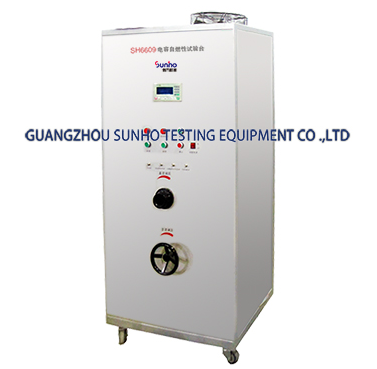The Importance of Capacitor Spontaneous Combustion Test
In today's highly technologically advanced age, electronic devices play an increasingly important role in our lives. From smart phones to computers, from household appliances to industrial equipment, almost all modern electronic devices rely on capacitors to function properly. However, the safety of capacitors, especially the issue of spontaneous combustion, has become an important topic that we have to face up to.
Spontaneous combustion of capacitors may lead to equipment damage, data loss, or even worse, it may cause a fire, resulting in property damage and personal injury. Therefore, the importance of capacitor spontaneous combustion test is self-evident, it is to ensure the safe and reliable operation of electronic equipment is a key link.
Capacitors can spontaneously combust for a variety of reasons, including defects in internal materials, improper design, quality control failures during production, and unsuitable factors in the environment in which they are used. Under these circumstances, conducting self-ignition tests becomes an important means of assessing and ensuring the safety of capacitors. Through these tests, manufacturers can identify and improve problems that may lead to the spontaneous combustion of capacitors, thereby improving the overall quality and safety of their products.

Self-ignition tests not only help manufacturers understand how capacitors perform under extreme conditions, but can also reveal potential risks that may be encountered in everyday use. Such tests typically involve exposing capacitors to high temperatures, high voltages or high currents to test their performance and stability under extreme conditions. These tests ensure that capacitors will operate safely even under the harshest conditions of use.
In addition to improving product safety, self-flammability testing is critical to building consumer trust. In today's highly competitive electronics market, consumers are increasingly concerned about product safety. By conducting rigorous spontaneous combustion tests and making the results public, manufacturers can not only prove the safety of their products, but also build a good brand image among consumers.
In addition, as technology continues to advance and modernise, electronic devices are becoming smaller and smaller, and capacitors are becoming smaller and more efficient. This trend has made the design and manufacture of capacitors more complex and made the problem of spontaneous combustion more difficult to control. Therefore, it is important to adapt to this trend by conducting self-ignition tests and optimising the product design and manufacturing process based on the results.
This has led to the development of the Capacitor Flammability Test Bench. This capacitor self-ignition test bench (SH6609) is designed and manufactured in accordance with IEC60384-14.4.18-2005 to test the self-ignition of capacitors, generate high-voltage impulse signals and provide AC power supply for X-Y impulse capacitors with a rated voltage of less than 500V and a frequency of 50Hz, which are less than 3uF. It is used for X-Y pulse capacitor with rated voltage less than 500V and frequency 50Hz to carry out self-ignition test, not applicable to Y1 type capacitor.

Technical Parameters:
1, Power supply: AC 220V 10% 50Hz.
2, Pulse voltage: 100 ~ 5000V, continuously adjustable, digital display accuracy of 3%.
3, Capacity: 10KVA
4, Specimen: 50μF/450V Max.
5, Test time: 0 ~ 99.99min (s) can be set arbitrarily.
6, Pulse interval time: 1~99.99s can be set.
Test times: 0~ 9999 can be set arbitrarily, digital display, accuracy: +1 times.
5, Output terminal with oscilloscope monitoring; external high-voltage probe + oscilloscope to monitor the test waveform; with 1 6A chronic fuse (circuit to meet the standard requirements).
Requirements)
6, With 16A chronic fuse.
7, With fire and explosion-proof safety test box (S304 stainless steel), with fire and heat-resistant glass observation window.
8, Adopt aluminium alloy structure.
9, Option: oscilloscope.
10, Test cotton users to provide their own.
11, Oscilloscope user-provided.
In conclusion, capacitor self-ignition test is essential to ensure the safety of electronic products, enhance consumer trust and meet the new challenges brought by technological development. Through these tests, we can not only protect consumers from the risk of spontaneous combustion of capacitors, but also promote the electronics industry to a higher standard of safety.

